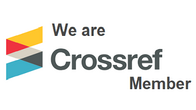Desain materi pengajaran Bahasa Indonesia bagi Penutur Asing dalam ranah komunikasi bisnis: analisis kebutuhan dan perspektif mahasiswa asing
Abstract
This study aims to find out what foreign students’ in learning Indonesian language for business course to improve the materials design. Since Indonesia is a country that has the fourth largest population in the world and one of the largest economies in Southeast Asia. Therefore, the Indonesian language has a very important role for foreigners who want to do business in Indonesia or work with Indonesian companies. Then, for preparing the readiness of the graduates to work at such company, there is BIPA for Business course that must be taken by BIPA learner. However, the materials which are taught to students, so far, do not meet the students’ interest and need. That is why this study conducted to put the students first in improving materials. This quantitative and qualitative study used needs analysis theory. Questionnaire and interview were conducted to collect the data and get all information to improve the materials design of BIPA for Business Course. The participants of this study were a BIPA teacher, one HRD of multinational company, and 18 students of BIPA learner. The finding of this study shows several materials needed by students and it can be implemented in BIPA for Business course.
Keywords
Full Text:
PDFReferences
Chunling, G. (2015). Need Analysis and Curriculum Design in Business Foreign Language. Studies in English Language Teaching, 3(2), 146. https://doi.org/10.22158/selt.v3n2p146
Diana, S., & Mansur, M. (2018). Need Analysis on Foreign Language Teaching Materials for Ict Students. ETERNAL (English, Teaching, Learning, and Research Journal), 4(2), 209. https://doi.org/10.24252/eternal.v42.2018.a6
Gray, F. E., & Murray, N. (2011). A distinguishing factor: Oral Communication Skills in New Accountancy Graduates. November 2014. https://doi.org/10.1080/09639284.2011.560763
Hutchinson, T., & Waters, A. (1987). English_for_specific_purposes_hutchinson.pdf. Cambridge University Press.
Jeczelewski, S. (University of I. (2016). Needs Analysis, Course Design and Evaluation of Business English. BA Research Project, University of Iceland School of Humanities Department of English, May, 28.
Johns, Ann M., D. P.-M. (2001). Foreign Language for Specific Purposes: Tailoring Courses to Student Needs— and to the Outside World. In M. Celce-Murcia (Ed.), Teaching English as a Second or Foreign Language (Third-Edit, p. 49). Heinle&Heinle.
Liton, H. A. (2015). ESP learners’ needs related learning for the workplace: A pragmatic study for business school. International Journal of Instruction, 8(2), 4–16. https://doi.org/10.12973/iji.2015.821a
Mahardika, A. . N. Y. M. (2014). The Need for Needs Analysis in Curriculum Development in ESP Course : a Reflection on Curriculum Development in Indonesia. Lingua Scientia, 6(2), 183–194.
Milaningrum, E., Damayanti, L., & Gafur, A. (2018). the Impact of Guided Writing Technique To Develop Students’ Esp Writing Skills in Balikpapan State Polytechnic. 1, 98–110. https://doi.org/10.24127/pj.v7i1
Remache, A., & Ibrahim, M. K. (2018). Business English Syllabus Design: Putting Students Needs First. International Journal of English Language and Literature Studies, 7(4), 81–93. https://doi.org/10.18488/journal.23.2018.74.81.93
Sidik, dkk. (2021). Analisis Kebutuhan Bahasa Indonesia bagi Penutur Asing untuk Bertahan Hidup bagi Ekspatriate Jepang. Prosiding Seminar Internasional Riksa Bahasa. Bandung. 2021
DOI: https://doi.org/10.26499/jbipa.v5i2.6681
Refbacks
- There are currently no refbacks.
Publisher:
Badan Pengembangan dan Pembinaan Bahasa, Kementerian Pendidikan dan Kebudayaan Republik Indonesia
Address: Jl. Daksinapati Barat 4 No.11, RT.11/RW.14, Rawamangun, Kec. Pulo Gadung, Kota Jakarta Timur, Daerah Khusus Ibukota Jakarta 13220 Phone: +62 (021) 4896558

Jurnal Bahasa Indonesia bagi Penutur Asing (JBIPA) is licensed under a Creative Commons Attribution-NonCommercial 4.0 International License.
View My Stats -->





